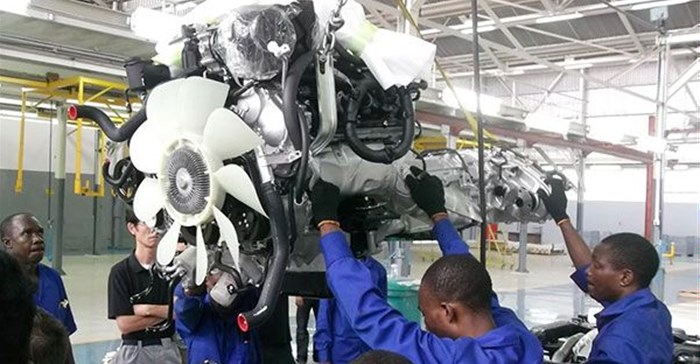
The automotive sector constitutes a vital part of the South African economy, generating around 7% of the country’s annual GDP and accounting for a third of its total exports, but we need to grow domestic production to account for one percent of the global output by 2020. This, as we strive to establish - as the minister has put it - “a globally competitive and transformed industry that actively contributes to the sustainable development of South Africa’s productive economy, creating prosperity for industry stakeholders and broader society.” The most recent projections indicate South Africa’s production needs will increase to 140-million units a year.
Therefore, we are increasing our manufacturing capacity in South Africa. This latest investment totals R3bn, and is aligned with the M.O.V.E. to 2022 mid-term plan, via which the company aims to double its presence in the Africa, Middle East and India (AMI) region over the course of the current six-year period.
This includes expansion in Pakistan, and the signing of a memorandum of understanding with the Ghanaian and Kenyan governments.
Nissan already has a strong industrial presence in the region with plants in India, Algeria and Egypt. We were the first-mover in Nigeria - where we have a joint venture plant which is proudly building cars in Nigeria, for Nigeria - and are also beginning a sustained phase of new model introduction across growth segments in established markets, evolving our retail network and industrial strategy.
With flexible new production architecture and current output rates set to increase by more than 50%, our Rosslyn facility is poised to become an anchor plant for the region. We expect our production output to grow to an annual total of more than 60,000 vehicles - for distribution throughout the local as well as export markets and accounting for 15% of Nissan’s total production output in the region.
It is an investment, which was in part made possible by the introduction of the new, extended Automotive Production and Development Programme (APDP). The APDP provides a stable investment framework and aggressive production goals for the period 2020 to 2035. It is also an investment, which is aligned with the development objectives of the SAAM. The South African economy is poised to benefit from the generation of an annual total of R5.8bn in new economic activity. We support government’s work to diversify the economy and raise production, while growing the local supplier base.
The Rosslyn facility currently employs 1,832 staff. The addition of the full model line-up of the next generation Navara to our production line results in the need for a second shift and initially creates an additional 400 jobs, the majority of which are in manufacturing operations. But an estimated total of 1,200 new jobs are set to be created throughout the full value chain.
Nissan is also bringing in teams from Japan to work with locally-based suppliers to develop the local component. And in partnership with the Automotive Industry Development Centre, we have built an incubation and training centre at the Rosslyn facility.
Through this incubation and training centre, we have already developed eight new black-owned suppliers and are targeting an additional five, to be operational when we start producing the Navara. Nissan is looking at starting local production of the Navara with a 38% local component. This is planned to increase to 48% by 2022 and going forward, we endeavour to continue to grow our local component further in line with the SAAM targets.